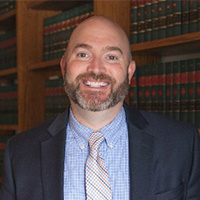East Branch Juvenile Law Lawyer, New York
Sponsored Law Firm
-
 x
x

Click For More Info:
-
Cohen & Bernstein, L.L.C.
1360 Clifton Ave #309 Clifton, NJ 07012» view mapCriminal Defense We’re In this Together!
We work hand in hand with our clients to ensure all of your questions are answered and progress through your legal issue is seamless.
800-978-7341
Not enough matches for East Branch Juvenile Law lawyer.
Below are all East Branch Criminal lawyers.
Tracy A Donovan Laughlin
✓ VERIFIEDDivorce & Family Law, Criminal
Tracy's Law Office
Tracy Donovan Laughlin is a practicing lawyer serving Otsego County in Cherry Valley, Cooperstown, and Oneonta, New York as well as the surrounding co... (more)
Scott A Russell
✓ VERIFIEDCriminal, Wills & Probate, Employee Rights, Banking & Finance
With experience serving the public as an Assistant District Attorney, prosecuting minor traffic infractions and serious felony offenses, as public def... (more)
 Lindsay Bernstein Clifton, NJ
Lindsay Bernstein Clifton, NJ Practice AreasExpertise
Practice AreasExpertise


